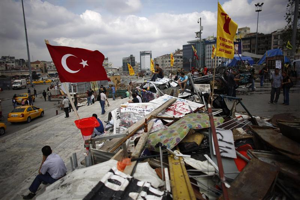Turkey Protests Rattle Washington
by Richard Weitz (vol. 6, no. 12 of the Turkey Analyst)
Since the dispersal of the first protest at Taksim’s Gezi Park towards the end of May 2013, numerous anti-government protests have erupted throughout Turkey, against what it is seen as the insensitive and authoritarian policies of Prime Minister Recep Tayyip Erdoğan. Torn between competing goals, the Obama administration has reacted very cautiously to the protests. U.S. officials have criticized the Turkish police for overzealous use of force, but have not taken issue with Erdoğan personally. This approach has the advantage of not antagonizing the Erdoğan government, which is seen as a strong regional security ally in Washington, especially regarding Syria and Iran. But this familiar approach - repeating the past pattern in bilateral relations, with the U.S. downplaying Turkish human rights and democracy concerns -- risks weakening the popular foundations of the alliance, which in turn constrain the partnership’s future potential.

The Turkish Protests and Erdogan's Disappearing Dreams
by Gareth Jenkins (vol. 6, no. 11 of the Turkey Analyst)
The unprecedented anti-government protests that have erupted across Turkey pose the most serious challenge to Prime Minister Recep Tayyip Erdoğan since his Justice and Development Party (AKP) first took office in November 2002. Although it is still too early to assess the extent of the threat to Erdoğan’s grip on power, he has been seriously weakened. At the very least, his dreams of establishing a presidential system and ruling the country singlehandedly for the next decade have suffered a fatal blow.





